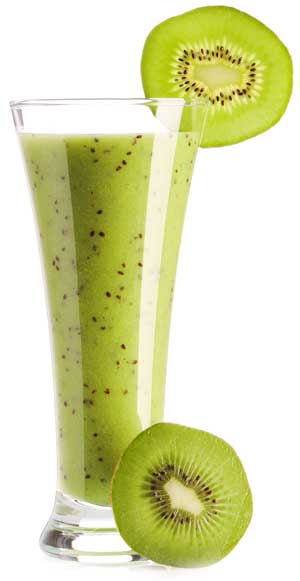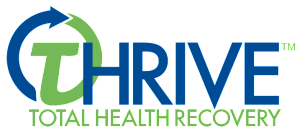September is National Recovery Month.
A Mark Twain quote states, “Giving up smoking is the easiest thing in the world. I’ve done it a thousand times.” This humorous quote paints a not so funny truth about addiction. Most people who are addicted to a substance have tried repeatedly to quit and have failed repeatedly and returned to their substance. Quitting is easy, maintaining sobriety is harder.
Overcoming drug and alcohol addiction is a challenge but understanding what to expect with both acute withdrawal symptoms and the much less understood or expected post-acute withdrawal syndrome (PAWS) can help to avoid relapse. Realistic expectations can make recovery an easier journey.
Recovery isn’t a fairy tale where the person stops using substances and immediately lives happily ever after. It is a process of allowing the body and nervous system to go through a healing process that can take some time. The amount of time can vary greatly according to the type of substance used as well as the length of time the substance abuse occurred.
Acute withdrawal or simply “withdrawal” is what people with addictions know and dread. They have most likely, like Mark Twain, quit a thousand times. Withdrawal is what causes them to return to their substance because it relieves the negative symptoms that happen as the substance is depleted from their system.

The length of time for acute withdrawal varies according to the substance, from a few days to a few weeks. Acute withdrawal from some substances such as alcohol for someone who has been drinking heavily for a long time, can be life threatening and stopping should be done with medical supervision. Benzodiazepines should be tapered slowly as recommended by a medical expert. Every substance is different, and every individual is different. Comorbid health issues can create risks with acute withdrawal from any substance, even those such as opioids where withdrawal, although extremely unpleasant, is not usually considered life threatening.
Medically supervised withdrawal can decrease the severity of symptoms and is much safer than attempting “cold turkey” detoxification. It can make detoxification a more comfortable process overall.
When the body is free from the substance, it begins a healing process back to normal functioning, but most people do not immediately feel better. Each person is different, but symptoms related to substance abuse can take weeks or months, and in some cases even a year or more to completely resolve. PAWS symptoms, sometimes known as protracted withdrawal often come and go and, because it’s less intense than acute withdrawal, the syndrome is often not recognized as part of the healing process.

Self-care cannot be over emphasized in coping with PAWS.
Physical and mental exercise can improve sleep, help relieve stress and anxiety and promote an overall feeling of well-being. Self-care also means being patient and knowing that although symptoms come and go, improvement continues. It is important to try not to do too much, and to get adequate rest.
Good nutrition can help in the long-term healing of the body. It is important to eat healthy, well-balanced meals.
Use your support network.
A strong support network of family and friends who are positive, supportive and understanding of PAWS can be extremely beneficial to someone in recovery. Support groups of cohorts who are also in recovery and understand PAWS can be helpful when symptoms flare up.

Remember that not everyone experiences Post-Acute Withdrawal Syndrome, and there is no specific time frame. It is helpful to be aware that if symptoms do occur after sobriety is attained, that it can be a normal and temporary part of the recovery process.
At Gulf Breeze Recovery, we understand detoxification and both acute withdrawal and post-acute withdrawal syndrome. If you or someone you care about, has an ongoing history of substance use and relapse, we can help. Contact us at Gulf Breeze Recovery or call: 833.551.2356 to speak to an addiction expert to learn more about our program that has helped so many people overcome their addiction, rediscover their dreams and embrace life.
We help people not just to survive, but to THRIVE®.
 About Gulf Breeze Recovery:
About Gulf Breeze Recovery:
Gulf Breeze Recovery, unlike other treatment centers in Florida, is a non 12 step holistic drug and alcohol rehab that is changing the future of addiction treatment with their THRIVE® (Total Health Recovery) program focused on overcoming chronic relapse.
Gulf Breeze Recovery’s THRIVE® program is a non 12-step approach designed for those who are looking for a drug and alcohol treatment program to produce a different and positive result.
This non-12 step program allows you to drive beyond your addictions and promotes a new outlook on life.
We are licensed by the Florida Department of Children and Families, and our last audit scored 99.7! Also, we are gold certified by the Joint Commission.
Want to read more about Gulf Breeze Recovery’s non 12 step, holistic drug and alcohol rehab? Check out some of our latest posts:
Researchers Identify Role of Key Brain Signaling Protein in Alcohol Use Disorder
January 29, 2021
College Students Who Returned Home Due to Pandemic Drinking Less
January 29, 2021
Overdose Deaths Soar in the Midst of a Pandemic
January 27, 2021
Alcoholism Today in Seniors and Younger Generations
January 20, 2021
End Chronic Relapse and Start a New Life!
At Gulf Breeze Recovery we don’t want you to have just a great recovery, we want you to have a great life!




 About Gulf Breeze Recovery:
About Gulf Breeze Recovery:





